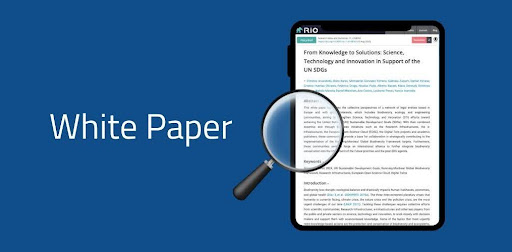COAST-SCAPES: a newly launched project, funded by the European Commission, is to propose a reconsideration of the current coastal ecosystem to enhance resilience and biodiversity protection through nature-based solutions.
Leading maritime engineering specialists, marine ecologists, and biodiversity experts, gathered in Barcelona (Spain) between 7 and 9 October to officially kick start the project’s vision on climate-resilient coastal landscapes. Hosted by the Maritime Engineering Laboratory from the Polytechnic University of Catalonia, the meeting focused on setting the strategic direction of the project, aligning the scientific, technical and communication objectives and establishing synergies between project partners across Europe and beyond.
In the span of two days, consortium partners were given the opportunity to present their missions with the COAST-SCAPES project, showcasing how each partner institution will contribute to building science-based and community-driven resilience pathways.
The project coordinator, Prof. Manel Grifoll, navigated the discussions, which centered around key deliverables and milestones, future challenges and plans on work-related activities, highlighting the crucial role of the project’s Core and Replicating Pilots for scalable resilience plans for replication and export.

Officially started on 1 September 2025, the COAST-SCAPES project has major ambitions to co-design systemic resilience solutions for coastal landscapes by developing integrated indicators, proactive climate warning systems, as well as knowledge-based strategies for business and maintenance in order to reduce the risks of climate change and improve land-sea interactions. To achieve this, COAST-SCAPES will promote the utilisation of nature-based solutions (NbS), seeking biodiversity gains and reduction of the environmental footprint under scarce natural resources.
The project brings together a diverse group of partners, including research institutions, universities and technological organisations from Europe, Africa and Latin America. Their shared goal is to restore vulnerable coastal areas and apply resilience through adaptation. Due to human intervention, which drastically altered the evolution of coastal ecosystems, the ecological role of such areas is becoming crucial. By harnessing their low-carbon adaptation potential, coastal ecosystems can mitigate climate-related risks and boost biodiversity.
COAST-SCAPES is a collective effort to rethink how we coexist with coastal systems. By integrating natural processes, technology, and community knowledge, we aim to create adaptive landscapes that safeguard biodiversity and support sustainable livelihoods. Our ambition is to build resilient coasts that can thrive, not just survive, under climate change.
says Prof. Manel Grifoll, project coordinator.
The selected project’s Core Pilots, among which the Mar Menor lagoon in the Iberian Peninsula, will serve as a starting point for leading experts to carry out large-scale resilience plans, while protecting coastal biodiversity and addressing existing infrastructure challenges.
Supported by social and technical innovation, as well as a governance shift, these plans will connect scientists, citizens, policy-makers, environmental activists, and the industry with administrations responsible for local implementations for an increased cross-sectoral engagement. Contributing to a balanced land-to-sea ecosystem and a sustainable biodiversity protection, COAST-SCAPES reminds us that coastal restoration is vital for our adaptation to climate change.
Pensoft’s contribution to COAST-SCAPES:
Pensoft will lead two tasks within the COAST-SCAPES’ Work Package dedicated to dissemination and communication for practical exploitation. The objectives of these tasks are focused on the identification of key exploitable results of the project. Together with other consortium members, Pensoft will be working on establishing the most suitable exploitation pathways for each result. The experienced communication team at the scholarly publishing and technology providing company will also be actively raising societal and technical awareness necessary to transform governance for systemic resilience through yearly newsletters and policy briefs. In addition, Pensoft takes part in Work Package 6, where it will be responsible for the project’s visual identity and ensuring constant visibility of project results, as well as proper data management.
List of project consortium members:
Coordinated by the Polytechnic University of Catalonia, the project brings together 30 partner organisations from 15 countries to develop coastal resilience through nature-based solutions (NbS).
- Polytechnic University of Catalonia (UPC)
- EURECAT Technology Centre
- The New Water Culture Foundation (FNCA)
- National Research and Development Institute for Marine Geology and Geoecology (GeoEcoMar)
- Consortium for the coordination of research relating to the Venice lagoon system (CORILA)
- National Institute of Oceanography and Experimental Geophysics (OGS)
- Euro-Mediterranean Center on Climate Change (CMCC)
- Scottish Association for Marine Science (SAMS)
- Royal Melbourne Institute of Technology Spain SL (RMIT Spain)
- University of Aveiro (UA)
- Pensoft Publishers (Pensoft)
- Ludwig-Maximilians-Universität München (LMU)
- Lower Saxony State Office for Water Management, Coastal Protection and Nature Conservation (NLWKN)
- University of Save (USV)
- Northern University Foundation (UNR)
- Mohammed Premier University (UMP)
- Assane-Seck University of Ziguinchor (UASZ)
- Global Climate Forum (GCF)
- Helmholtz-Zentrum Hereon GMBH
- Odesa I.I. Mechnykov National University
- International Center for Coastal Resources Research of Spain
- Can Tho University
- Ministry of Infrastructure and of Transport of Italy
- Spanish National Research Council (CSIC)
- University of San Francisco de Quito (USFQ)
- WWF Romania
- Association for the Defense of Nature/WWF – Spain
- Royal Melbourne Institute of Technology – RMIT University (RMIT Uni)
- Ministry for Ecological Transition and the Demographic Challenge of Spain (MITECO)
- Portuguese Environment Agency (APA)
For more information:
Follow the COAST-SCAPES project on Bluesky and LinkedIn.
Project website coming soon!
Funded by the European Union under grant agreement No. 101213138, COAST-SCAPES (rethinking COASTal landSCAPES with climate-resilient interventions: systemic land-to-sea solutions).
Views and opinions expressed are, however, those of the author(s) only and do not necessarily reflect those of the European Union or the European Research Executive Agency (REA). Neither the EU, nor the REA can be held responsible for them.








